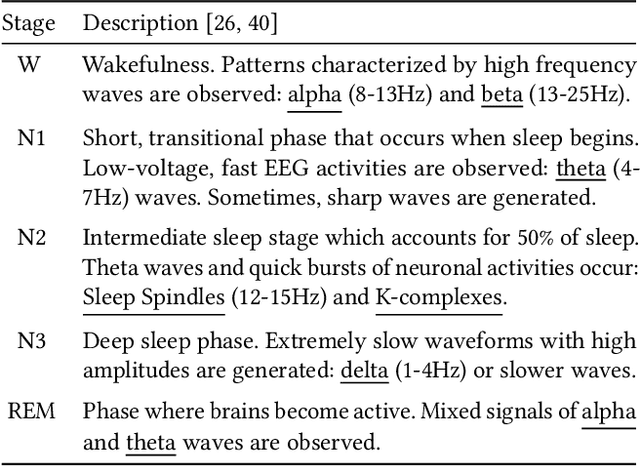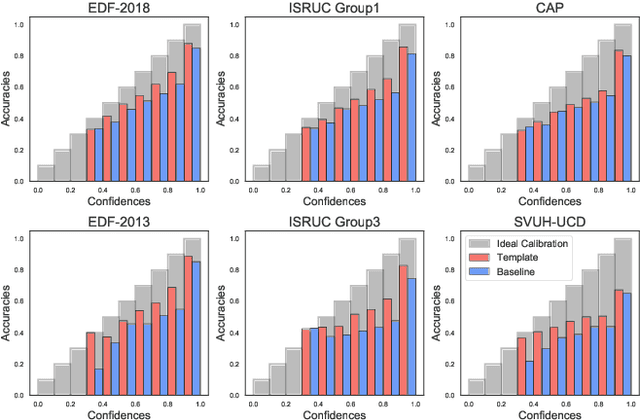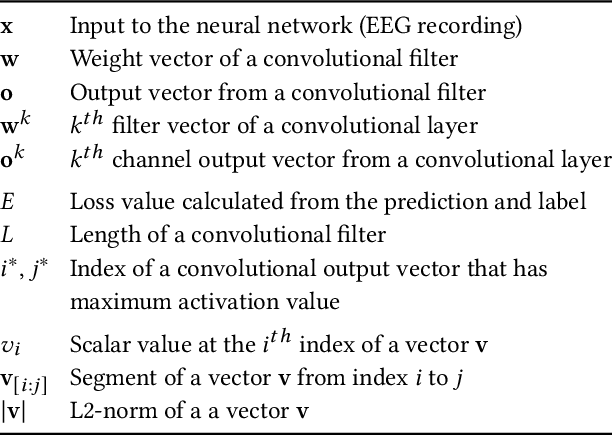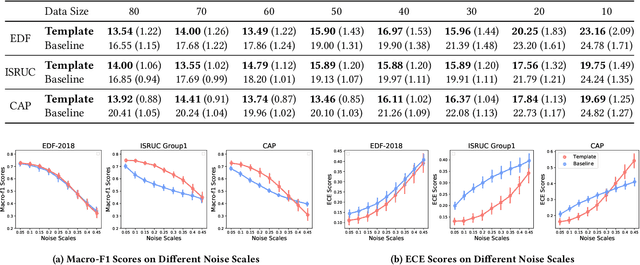TRIER: Template-Guided Neural Networks for Robust and Interpretable Sleep Stage Identification from EEG Recordings
Paper and Code
Sep 10, 2020



Neural networks often obtain sub-optimal representations during training, which degrade robustness as well as classification performances. This is a severe problem in applying deep learning to bio-medical domains, since models are vulnerable to being harmed by irregularities and scarcities in data. In this study, we propose a pre-training technique that handles this challenge in sleep staging tasks. Inspired by conventional methods that experienced physicians have used to classify sleep states from the existence of characteristic waveform shapes, or template patterns, our method introduces a cosine similarity based convolutional neural network to extract representative waveforms from training data. Afterwards, these features guide a model to construct representations based on template patterns. Through extensive experiments, we demonstrated that guiding a neural network with template patterns is an effective approach for sleep staging, since (1) classification performances are significantly enhanced and (2) robustness in several aspects are improved. Last but not least, interpretations on models showed that notable features exploited by trained experts are correctly addressed during prediction in the proposed method.
 Add to Chrome
Add to Chrome Add to Firefox
Add to Firefox Add to Edge
Add to Edge